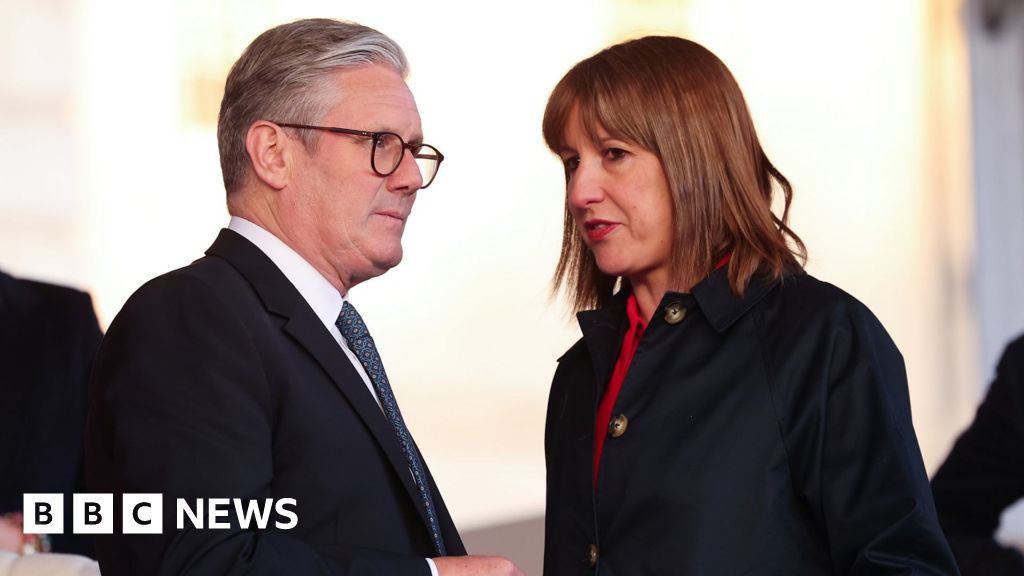- Get link
- X
- Other Apps
- Get link
- X
- Other Apps

Chris Mason: Reeves's Spending Priorities Leave Little Wiggle Room
The upcoming Spending Review, led by Chancellor Rachel Reeves, is poised to be a pivotal moment, shaping the UK's trajectory in the years leading up to the next general election. While the term itself might not ignite immediate excitement, its implications for essential services like healthcare, defence, education, policing, and the justice system are profound. This review will offer a concrete understanding of the government's financial priorities and, inevitably, highlight the areas that will benefit and those that will face constraints.
Expect the government to frame its initial year as dedicated to "fixing the foundations," a euphemism for navigating challenging decisions, notably the implementation of tax increases, such as the rise in employers' national insurance contributions.
The government is acutely aware of its rapid decline in popularity, despite securing a substantial majority with just 34% of the vote last summer. Chancellor Reeves will likely emphasize the government's commitment to "renewing Britain," while acknowledging that many citizens have yet to experience tangible improvements.
A central theme will be the importance of stability. Reeves's recent participation in a G7 finance ministers' meeting in Canada, where she held the second-longest tenure among attendees despite being in office for less than a year, underscores the volatile global landscape and the need for a steady hand.
The Institute for Fiscal Studies (IFS) and other experts have highlighted the allocation of funds to the health service as the most crucial decision within the Spending Review. Given that the NHS consumes roughly 40% of day-to-day government spending, its budgetary outcome will significantly influence all other areas. This has been a recurring pattern, with healthcare often receiving proportionally more generous funding.
Furthermore, the government's commitment to increased defence spending, coupled with an environment of low economic growth, adds complexity to the financial landscape.
This confluence of factors suggests potential budget squeezes in other sectors. Paul Johnson, the outgoing director of the IFS, succinctly puts it: "This will be one of the tightest spending reviews in modern times, outside of the austerity period of the early 2010s."
In recent weeks, the government has emphasized its long-term investment plans, particularly in infrastructure projects related to transport and nuclear power. The specific details of which budgets will be reduced, and by how much, are eagerly awaited.
The government has briefed Labour MPs on the plans, aiming to provide them with "a song to sing" – talking points to use when discussing the government's agenda. While many Labour MPs appreciate the focus on long-term spending, they remain acutely aware of the current political volatility and the urgency of delivering tangible results quickly.
One Labour MP reflected, "The problem with talk of 'a decade of national renewal' is so much of this stuff is long term and so we could get half way through the decade and then lose the election."
Treasury officials are mindful of criticisms, particularly those suggesting that squeezed day-to-day budgets resemble austerity measures. This has prompted a "war on graphs," with a focus on presenting data that supports the government's narrative.
Officials emphasize that when combining day-to-day spending with capital spending, the overall trend is upward, contradicting claims of austerity. As one senior figure stated, "This is about £4tn of spending. We reset the foundations. This is stage two: setting things out. Then, we hope for the delivery."
The political and economic backdrop is undeniably challenging, characterized by a demanding electorate, limited economic growth, and an unpredictable international environment. Given the government's chosen priorities – healthcare and defence – and its commitment to projecting economic competence, Chancellor Reeves faces significant constraints, leaving limited room for maneuver.
The UK stands at a critical juncture, and the upcoming Spending Review will be instrumental in shaping the nation's future. While challenges abound, a strategic and well-executed plan has the potential to pave the way for sustainable growth and improved public services. The devil, as always, will be in the details and the effective implementation of the Chancellor's vision.
Tags: UK Spending, Rachel Reeves, Spending Review, UK Economy, Government Spending, UK Politics, Tax Rises, Health Service, General Election, Economic Policy Source: https://www.bbc.com/news/articles/c9q0rd1x5l5o
Economic Policy
General Election
Government Spending
Health Service
Rachel Reeves
Spending Review
Tax Rises
UK economy
UK Politics
UK spending
- Get link
- X
- Other Apps
Comments
Post a Comment